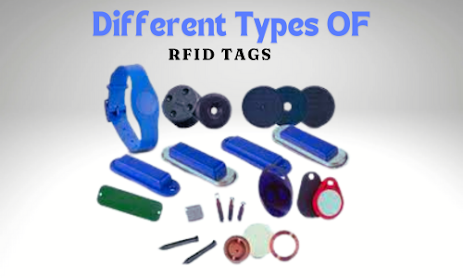How RFID Tags Reduce Construction Project Costs
RFID
technology is gaining rapid popularity due to its ability to solve some of the
most persistent problems in construction. By Using RFID tags to track inventory in real time
to reduce downtime caused by missing equipment, RFID brings precision and
efficiency to construction site management. Implementing RFID technology allows
for better coordination between workers and materials, reducing delays and
minimizing errors. This not only helps to control costs but also keeps projects
moving forward smoothly.
What is RFID Technology?
Radio
Frequency Identification (RFID) technology is a system that uses
electromagnetic fields to track nd manage assets. RFID tags, which consist of
a small chip and antenna, can be attached to tools, equipment,
materials, and even employee badges. Unlike barcodes that require direct
scanning, RFID tags can be read from a distance, without a line of sight. This
makes gathering and tracking real-time data across a construction site easy.
From
managing inventory to tracking workforce movements, RFID tags provide instant
insights, allowing project managers to make better decisions. This technology
is particularly useful in large construction projects where manual tracking
becomes inefficient and costly.
How RFID Tags Reduce Construction Project Costs
RFID
technology offers several ways to cut costs, which can make a big difference in
managing a construction project efficiently. Let’s explore how RFID technology tackles some of the biggest cost-related
challenges in the industry.
1. Reducing Theft
Construction
site theft poses a significant problem that can substantially inflate costs.
Losing expensive equipment or materials not only causes delays but also eats
into the project’s budget. With an estimated annual loss between $300 million
to $1 billion from theft, companies need a reliable way to protect their
assets.
High Temperature RFID tags provide a layer of security that
traditional methods lack. By tagging high-value tools, machinery, and building
materials, construction companies can track these assets in real time. If something
is moved outside a designated area, an alert is triggered, allowing immediate
action to be taken. The ability to monitor equipment 24/7 not only reduces the
risk of theft but also helps recover stolen items.
With
RFID, companies can avoid expensive replacements and reduce insurance costs,
ultimately saving significant amounts of money on projects.
2. Improving Time Management
In
construction, time is money. Delays, miscommunication, and inefficiencies often
lead to extra costs, especially when workers or materials aren’t where they
need to be. Traditional methods of tracking labor and materials can be
time-consuming and prone to human error, which can slow down projects and
increase costs.
RFID
technology provides real-time visibility into every aspect of a construction
site. RFID tags attached to employee badges allow project managers to monitor
worker attendance and location across the site. This ensures that labor is used
efficiently, and workers are being paid for the exact hours they’re on the job.
It also helps in tracking equipment usage, preventing any delays caused by
missing tools or machinery.
Furthermore,
RFID systems automate the process of tracking deliveries and inventory. This
ensures that materials are delivered on time and kept in the right place,
avoiding any delays or extra costs due to missing supplies. With RFID,
construction managers can optimize daily operations, preventing time from
slipping away and cutting down on unnecessary expenses.
3. Optimizing Resource Allocation
Efficient
resource allocation is essential to keeping construction projects on budget.
However, without accurate information on inventory and equipment, companies
often end up over-ordering materials or renting additional machinery, leading
to wasteful spending.
RFID
technology offers an ideal solution for this. By providing real-time data on
inventory levels, construction managers can make informed decisions about
ordering materials. For example, if a certain type of building material is
running low, an RFID system will send an alert before stocks are depleted. This
ensures timely reordering and prevents overstocking, which reduces waste and
lowers costs.
RFID tags
can also track the usage of heavy machinery. If equipment is sitting idle for
long periods, it might be better allocated to another site or rented out. By
keeping a close eye on resource usage, construction companies can avoid the
costs of renting extra machinery unnecessarily and optimize their existing
assets.
The Long-Term Benefits of RFID in Construction
RFID
technology doesn’t just provide immediate cost savings. It also delivers
long-term benefits that can help construction companies stay competitive in the
future. By improving overall site efficiency, companies can complete projects
faster, minimize errors, and avoid the need for costly rework.
Beyond
reducing costs, RFID systems can also help improve safety, ensure regulatory
compliance, and offer better transparency throughout the supply chain. These
advantages not only lead to lower costs but also contribute to better overall
project outcomes.
Conclusion
RFID
technology is revolutionizing the construction industry by offering practical
solutions to some of the biggest cost challenges. From reducing theft to
improving time management and optimizing resource allocation, RFID tags are
making construction projects more efficient and cost-effective.
.png)




Comments
Post a Comment